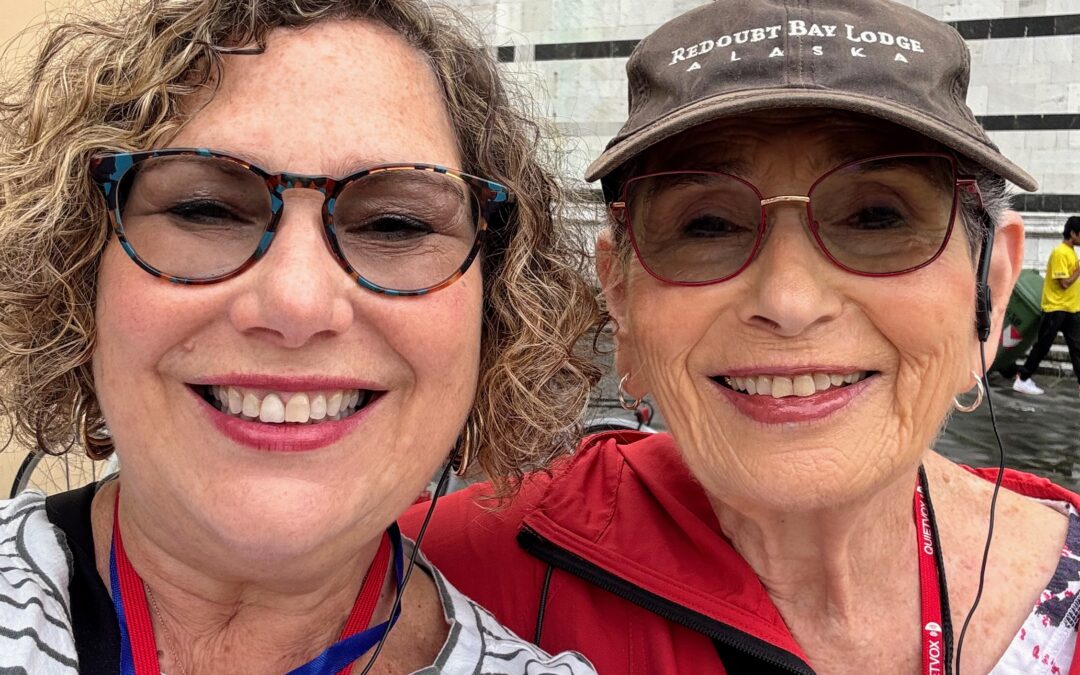I’m just back from Italy after traveling with my mom—a trip filled with beauty, laughter, and plenty of pasta. But it didn’t start that way. The first few days brought a travel hiccup that shook me more than I expected and gave me a crash course in resilience.
The plan was simple: I’d fly to Boston, meet up with my mom, and then we’d fly together to Frankfurt and on to Pisa. I had convinced her I could book our flights better (and cheaper!) than her usual tour company. She was skeptical, but I was determined to prove her wrong.
Then—life happened.
Boston had storms and runway construction, and my flight was delayed almost five hours. We missed our connection. Scrambling, I rebooked us for the next day. The only seats available? Economy. So we went from business class to coach—and, adding insult to injury, I actually got charged for the downgrade. (Yes, you read that right!) We also arrived late to the program we were enrolled in. It felt like a disaster. Add in unhelpful Lufthansa customer service, and my distress level was so high I was near tears all night.
That’s the thing about travel—it tests your resilience. And in that moment, it was pretty obvious I wasn’t in my usual positive, get-up-and-solve-it mode.
I was reminded that resilience is the ability to adapt, recover, and grow in the face of stress, adversity, or setbacks. It’s not about avoiding difficulty—it’s about how effectively you bounce back, or even “bounce forward,” after challenges.
What I needed in that moment was resilience—and mine was seriously lacking. I realized my resilience muscle was out of practice. Like any muscle, if you don’t use it regularly, it weakens. I’ve been lucky—most of my travels have gone smoothly—so I hadn’t had to flex it much lately.
The good news? Resilience can be built and strengthened. It rests on a few core components:
- Emotional Regulation – Staying grounded instead of swept away by feelings.
- Adaptability – Adjusting when plans shift (and they always do).
- Optimism & Hope – Believing challenges are temporary and solvable.
- Connection – Leaning on supportive relationships and community.
- Purpose & Meaning – Holding onto a bigger “why” that keeps you moving forward.
For individuals, resilience means keeping perspective, caring for your well-being, and learning from each stumble. For teams, it means recovering from conflict or change without losing trust or momentum. For leaders, it’s modeling calm, confidence, and adaptability so others can follow your lead.
So here’s my reflection for you:
When have you been caught off guard by circumstances that shook you more than expected? How did you get back up—and how has that resilience muscle served you since?


Recent Comments